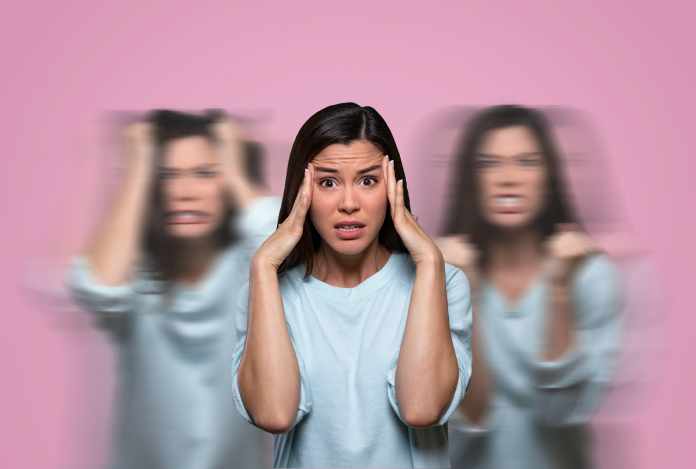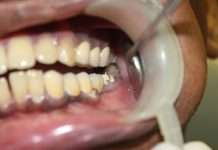Hormones are your body’s compound chemical couriers. In this article, you will get to know about the hormonal imbalance treatment: 7 natural ways to balance your hormones effectively.
Created in the endocrine organs, these incredible synthetic chemicals travel around your circulatory system, guiding tissues and organs.
They help control a large number of your body’s significant cycles, including digestion and reproduction.
At the point when you have a hormonal imbalance in your body, you have excessively or excessively little of a specific hormone. Indeed, even small changes can have real impacts all through your entire body.
Consider hormones like the recipe for a cake, to an extreme, or too little of anyone fixing influences the end result.
While some hormone levels vary throughout your lifetime and may simply result from your aging, different changes happen when your endocrine organs get the wrong formula.
Read on to get familiar with natural remedies as a treatment for hormonal imbalance and its causes and prevention tips. So, without wasting much time, let’s get started!
Table of Contents
1. Get a Proper Sleep!
Rest might be among the main elements of hormonal imbalance. Levels of certain hormones may rise and fall for the day in light of issues like the nature of rest.
As indicated by an examination in the International Journal of Endocrinology Trusted Source, the adverse effects in the disturbance of quality sleep on hormones may add to:
- Weight
- Diabetes
- Loss of Appetite
Consistently getting a complete, undisturbed night’s sleep may assist the body in successful natural hormonal imbalance treatment by controlling hormonal levels.
2. Reduce Stress!
According to a study published in the journal Experimental and Clinical Sciences Trusted Source, stress, the endocrine system, and hormone levels are related.
According to the researchers, the relation is solid, with even low levels of stress triggering an endocrine response. Reducing stress is one of the effective hormonal imbalance treatment in females.
Adrenaline and cortisol levels rise in response to stress. If these hormone levels are too high, they will throw the body’s rhythm off, resulting in obesity, mood swings, and even cardiovascular problems.
As a result, finding ways to relieve tension is essential. According to a report published in the journal Psychoneuroendocrinology Trusted Source, simply listening to music decreases anxiety and relieves stress from the body.
3. Consume a Sufficient Amount of Protein at Each Meal!
It is essential to consume a sufficient amount of protein.
Dietary protein contains essential amino acids that your body cannot produce on its own and must be ingested daily to keep muscle, bone, and skin healthy.
Protein also affects the release of hormones that regulate appetite and food consumption.
Experts suggest eating a minimum of 20–30 grams of protein per meal to improve hormone health.
Having a serving of these high-protein foods in each meal is a simple way to do this.
4. Engage Yourself in Routine Exercises!
Regular activity has biochemical effects that can help to discourage overeating.
Also, short workout sessions help balance hormones that influence appetite, according to a study published in Sports MedicineTrusted Source.
Exercising daily can become a powerful treatment for hormonal imbalance.
According to an article published in BMJ Open Sport & Exercise Medicine Trusted Source, regular physical activity also lowers the risk of insulin resistance, metabolic syndrome, and type 2 diabetes.
5. Eliminate or Reduce the Intake of Sugar and Various Food Sensitivities!
Sugar raises insulin levels, which disrupts the equilibrium of other hormones and leads to insulin resistance.
Food sensitivities, such as gluten aversion, can increase inflammation and lead to hormonal imbalances, such as high cortisol levels.
According to studies, a gluten-free diet can help to minimize inflammation and insulin resistance. Avoiding or reducing sugars can be effective in hormonal imbalance acne treatment.
Consider developing an elimination diet with the help of a chiropractor or other wellness provider to see how the symptoms change.
6. Consume Green Tea!
Green tea is a naturally healthy beverage that contains antioxidants and compounds that support the body’s metabolism.
According to Trusted Source, the American Journal of Clinical Nutrition published a study on the subject stating that green tea has been linked to lower fasting insulin levels.
The tea’s antioxidants can also aid in the management of oxidative stress.
7. Consider Taking Supplements and Natural Medicines!
Natural remedies or supplements can help with some hormonal issues, according to some shreds of evidence.
For example, a study published in Complementary Therapies in Medicine Trusted Source showed that a Chinese herbal therapy regimen resulted in doubled pregnancy rates among female infertility participants compared to Western, drug-based care.
Another research published in the Avicenna Journal of Phytomedicine Trusted Source found that Nigella sativa, also called black seeds or fennel flower seeds, can help increase estrogen tumor levels and is considered an effective hormonal imbalance treatment for females.
If human trials back up these results, the supplement will be beneficial to females going through menopause.
What All You Should Know About Hormonal Imbalance?
When there is too much or too little of a hormone in the body, hormonal imbalances exist. Because of their critical position in the body, even minor hormone imbalances may have far-reaching consequences.
Signs and Symptoms of Hormonal Imbalance!
Hormonal imbalance happens to everybody at some stage in their lives, but it may also occur when the endocrine glands aren’t working correctly.
What glands and hormones are compromised determines the signs of a hormonal imbalance.
The following are some of the symptoms linked to the more general causes of hormonal imbalances:
- Sudden weight loss or weight gain
- Difficulty Sleeping
- Excessive Sweating
- Dry Skin
- Changes in blood pressure
- Long-term fatigue
- Changes in heart-rate
- Anxiety
- Increased thirst
- Acne
- Headaches
- Bloating
- Infertility
- Change in appetite
- Deepening of the voice in females
- Hairloss
- Irregular or heavy periods
- Skin tags
These were some of the widespread symptoms associated with hormonal imbalance in general. Now let’s talk about the causes of hormonal imbalance in the body.
Causes of Hormonal Imbalance!
At some point in their lives, everyone will undergo regular hormonal imbalances or fluctuations.
Hormonal imbalances, on the other hand, may occur when the endocrine glands aren’t working correctly.
Hormonal imbalance can be caused by a variety of factors, including:
- Medication for hormone therapy
- Certain medications
- Trauma or stress disorder
- Trauma or stress disorder
- Chemotherapy
- Eating Disorders
- Tumours
Although hormonal imbalances can initially trigger the conditions mentioned below, having them can also lead to further hormonal imbalances:
- diabetes mellitus (type 1 and type 2)
- Hyperthyroidism
- Hypothyroidism
- Cushing Syndrome
- Addison’s disease
- PCOS or PCOD
- Menopause
Takeaway!
Hormones are in control of all of the body’s primary functions. When hormones are out of whack, the effects can be very varied. Hormones play a role in almost every part of your well-being.
For the body to work correctly, you need them in exact quantities.
Hormonal imbalances can also exacerbate obesity, asthma, heart disease, and other health issues.
Even though age and other causes are beyond your control, you should take several measures to help your hormones work at their best. To restore hormonal balance, each problem necessitates a different approach.
Consuming balanced meals, exercising regularly, and participating in other good habits will also help improve your hormonal well-being and be good-to-go options as an effective treatment for hormonal imbalance in adults.
A hormonal imbalance will result in many severe problems, so it’s vital to get hormonal imbalance treatment as quickly as possible.


















